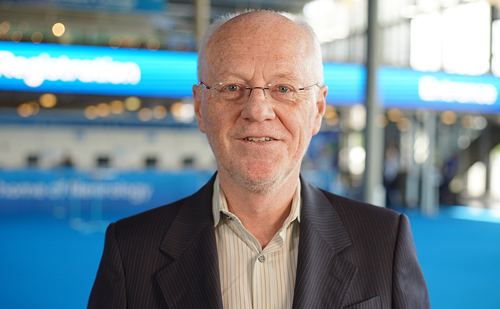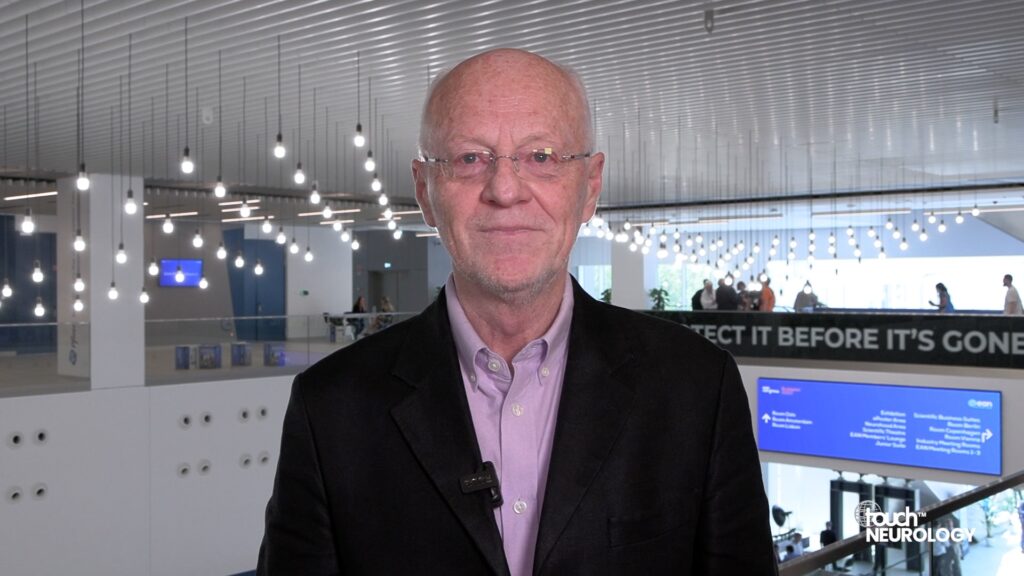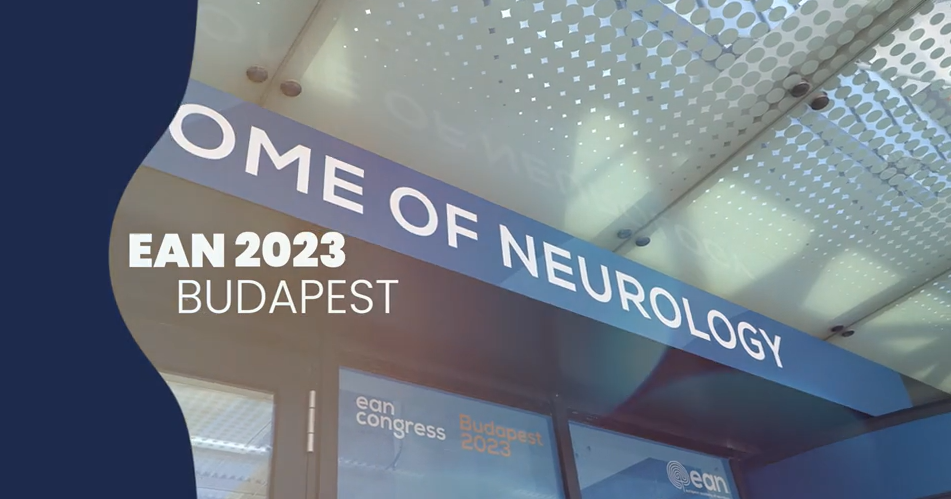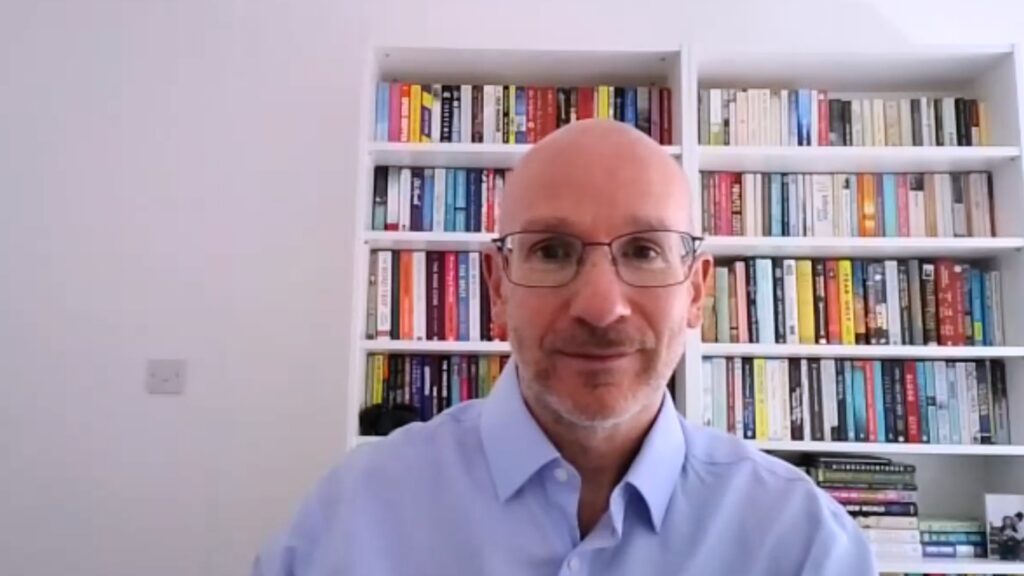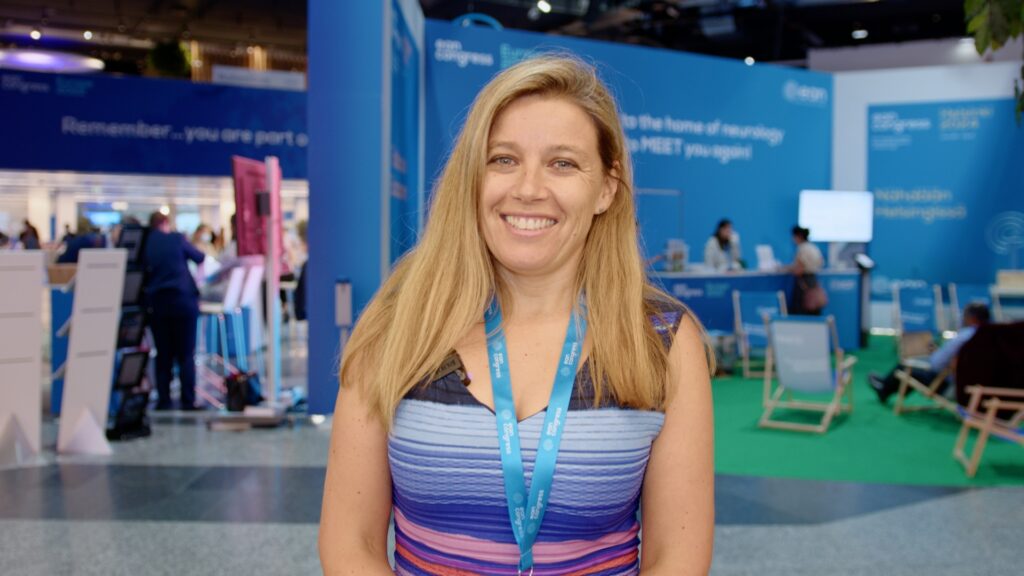In this touchNEUROLOGY interview, editorial board member Prof Peter Goadsby (King’s college Hospital, London) provides an overview of his top three most important clinical trial data and hot topics presented at the annual European Academy of Neurology (EAN), July 1–4, 2023, in the field of headache disorders. He highlights two important presentations using calcitonin gene-related peptide (CGRP) monoclonal antibodies.
Disclosures: Peter Goadsby has received consultant fees from: Aeon Biopharma, Abbvie, Amgen, CoolTech LLC, Epalex, Eli Lilly, GlaxoSmithKline, Gerson Lehrman Group, Guidepoint, Tremeau, Lundbeck, Novartis, Pfizer, Praxis, SAI Med Partners, Sanofi, Satsuma, Shiratronics, Teva Pharmaceuticals and Vector Metric. He has received royalties or licenses from Massachusetts Medical Society, Oxford University Press, UptoDate and Wolters Kluwer. He has received grant/research support from Celgene and honoraria/honorarium from CME Outfitters. He is a member of the advisory board for Aeon Biopharma, and discloses a leadership or fiduciary role in other board, society, committee or advocacy group, paid or unpaid with: American Headache Society,
Migraine Trust and Organisation for Understanding Cluster Headache (UK).
Support: Interview and filming was supported by Touch Medical Media. The interview was conducted by Sophie Nickelson.
Filmed as highlight of EAN 2023.
Transcript
Hi. Peter Goadsby. I’m at the European Academy of Neurology here in Budapest, and I’m going to talk about three areas that have caught my attention.
So the first are calcitonin gene-related peptide (CGRP) monoclonal antibodies and everyone’s talking about those. I want to just pick a couple of examples of things where we’re starting to learn from real-world evidence from clinical practice.
The first study that comes to my mind, a study involving Ilaria Cetta, Roberta Messina, Massimo Filippi, and others that looked at patients who’d been treated with a CGRP monoclonal antibody either for a year or for longer than a year and then had a three-month discontinuation. What they showed was the group of people who’d been treated longer actually did worse after discontinuation. What I think that tells us is that these therapies are excellent. These therapies, however, need to be taken for long periods of time to have useful effects and reduced disability.
Another study, which I think is quite important in terms of safety, Gonzalez-Martinez, on behalf of co-authors, looked at patients on CGRP monoclonals who were over the age of 65 and a cohort who were under the age of 55 and compared the two. The only difference was that those over the age of 65 had more vascular risk factors, though hardly surprising. They saw a 59% 50% responder rate, which is consistent with the clinical trials, and no difference in adverse events between the older group and the younger group.
This is what we’re finding in clinical practice, that these medicines are well-tolerated and in fact safe and usable in folks that we might have not otherwise been easily treating in the past, you might say.

